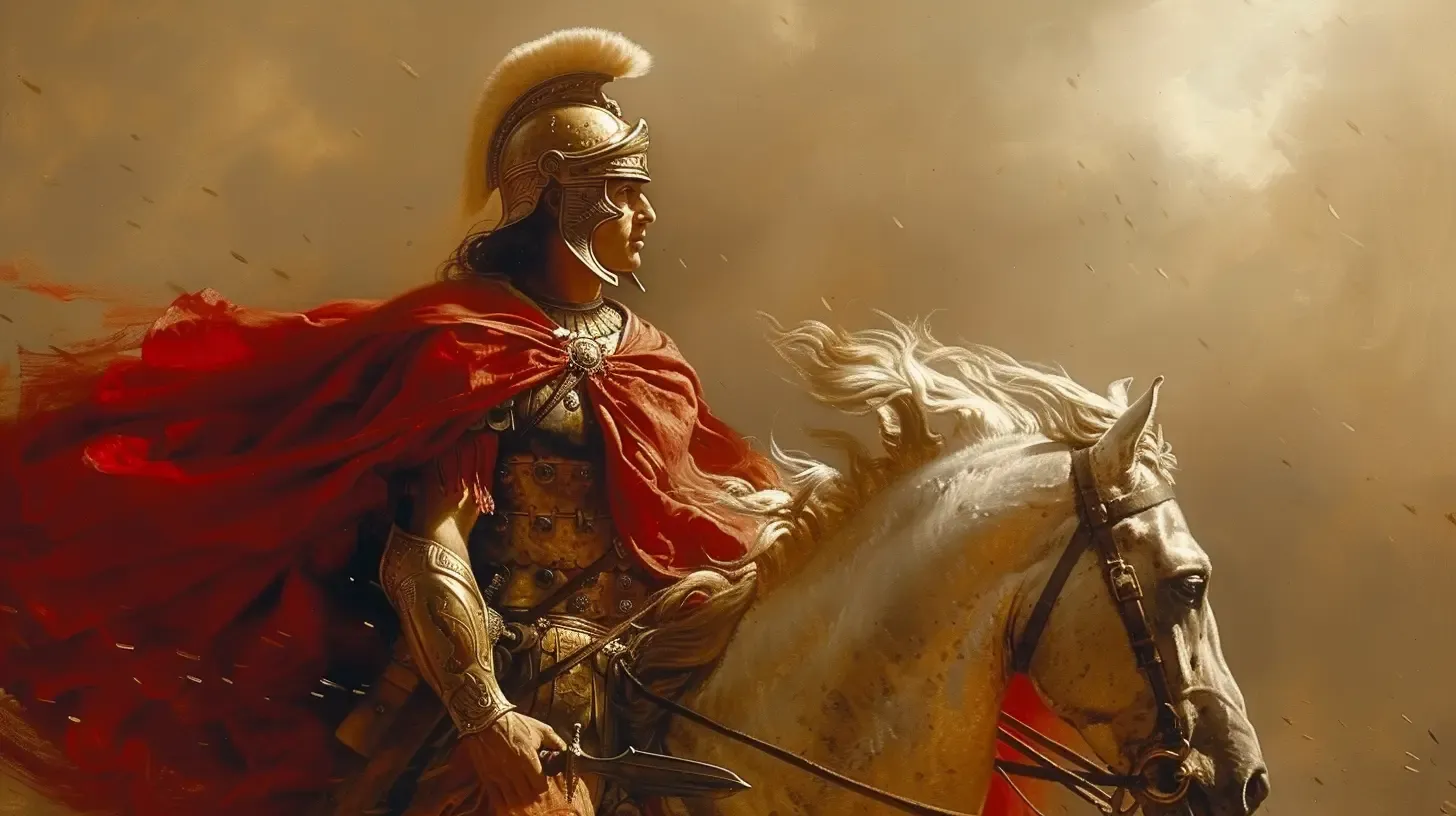15 February 2024
Alexander the Great: Strategist, Visionary, and Cultural Icon.

Press the play button in the top right corner to listen to the article
Alexander the Great, a figure synonymous with military genius and visionary leadership, embarked on a conquest that forever altered the ancient world's landscape. His ability to blend diverse tactics and strategies against varied foes and terrains stands as a testament to his military prowess. From the decisive Battle of Gaugamela to the complex Siege of Tyre, Alexander showcased an unparalleled adaptability and innovative approach to warfare. His leadership was characterized by personal valor and a deep connection with his soldiers, fostering a loyalty that propelled his army to achieve the seemingly impossible.
Beyond the battlefield, Alexander's reign catalyzed significant societal transformations. His policy of cultural fusion, encouraging the integration of Macedonian and Persian customs, laid the foundation for a new era of cultural and intellectual exchange. This blending of cultures under Alexander's empire facilitated the spread of Greek language and arts, while also promoting the assimilation of Eastern traditions, which played a pivotal role in the development of the Hellenistic Period. This era was marked by a remarkable advancement in science, philosophy, and the arts, as Greek thought merged with Eastern traditions to forge a rich, multicultural tapestry that enriched the Mediterranean and Near Eastern regions.
Alexander's influence extends far into modern culture, where his life and campaigns continue to inspire analysis and emulation. Military strategists and leaders in various fields study his tactics and leadership qualities, drawing lessons on adaptability, strategic planning, and the importance of leading by example. In popular culture, Alexander's legacy has been immortalized in films, literature, and art, reflecting the enduring fascination with his persona and achievements. The cities he founded, especially Alexandria, became hubs of intellectual and cultural exchange, influencing the development of educational and scientific institutions throughout history.
Moreover, the Hellenistic Period, initiated by Alexander's conquests, significantly impacted the regions under his rule. This period saw the emergence of new forms of art, architecture, and literature, as well as significant advancements in science and philosophy, which would lay the groundwork for the Roman Empire and ultimately shape Western civilization's trajectory.
In summary, Alexander the Great's legacy is multifaceted, encompassing his achievements as a military commander, his vision of cultural synthesis, and his enduring impact on modern culture and institutions. His ambition to create a unified world, though not fully realized in his lifetime, initiated a period of cultural flourishing that continues to influence contemporary society. Alexander's story, blending historical fact with the allure of legend, challenges us to consider the profound effects of leadership and vision in shaping the course of history.
Exploring Alexander's legacy offers valuable insights into the complexity of cultural integration, the evolution of military strategy, and the timeless quest for greatness. His life serves as a reminder of the potential for individual impact on the world, inspiring future generations to pursue their visions with courage and determination.
The content, including articles, medical topics, and photographs, has been created exclusively using artificial intelligence (AI). While efforts are made for accuracy and relevance, we do not guarantee the completeness, timeliness, or validity of the content and assume no responsibility for any inaccuracies or omissions. Use of the content is at the user's own risk and is intended exclusively for informational purposes.
#botnews















































































